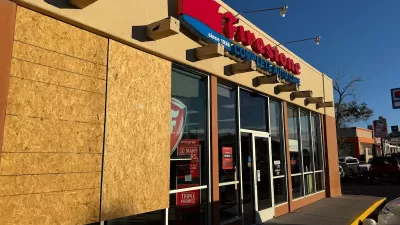The editorial board of the Minneapolis Star Tribune calls out the Minneapolis City Council following a recent decision to protect a one-story building at the cost of a hotel development plan.
The Minneapolis City Council recently blocked a development proposal for a six-story hotel in Dinkytown, a popular neighborhood near the University of Minnesota.
The editorial board of the Star Tribune takes umbrage with the vote—calling into question the council’s stated intentions of growing the city’s population and tax base.
“Especially troubling was the tactic that the council used. Apparently with straight faces, its members voted to explore the historic significance of a less-than-ordinary one-story building along 4th Street SE., where a six-story hotel would have been built. If a four-month study finds it worthy, the building will be protected from demolition,” write the editors.
The article goes on to explain the benefits of transit oriented development (because clearly the City Council needs a lesson).
FULL STORY: Minneapolis may not be that serious about growth after all

Planetizen Federal Action Tracker
A weekly monitor of how Trump’s orders and actions are impacting planners and planning in America.

Chicago’s Ghost Rails
Just beneath the surface of the modern city lie the remnants of its expansive early 20th-century streetcar system.

San Antonio and Austin are Fusing Into one Massive Megaregion
The region spanning the two central Texas cities is growing fast, posing challenges for local infrastructure and water supplies.

Since Zion's Shuttles Went Electric “The Smog is Gone”
Visitors to Zion National Park can enjoy the canyon via the nation’s first fully electric park shuttle system.

Trump Distributing DOT Safety Funds at 1/10 Rate of Biden
Funds for Safe Streets and other transportation safety and equity programs are being held up by administrative reviews and conflicts with the Trump administration’s priorities.

German Cities Subsidize Taxis for Women Amid Wave of Violence
Free or low-cost taxi rides can help women navigate cities more safely, but critics say the programs don't address the root causes of violence against women.
Urban Design for Planners 1: Software Tools
This six-course series explores essential urban design concepts using open source software and equips planners with the tools they need to participate fully in the urban design process.
Planning for Universal Design
Learn the tools for implementing Universal Design in planning regulations.
planning NEXT
Appalachian Highlands Housing Partners
Mpact (founded as Rail~Volution)
City of Camden Redevelopment Agency
City of Astoria
City of Portland
City of Laramie





























